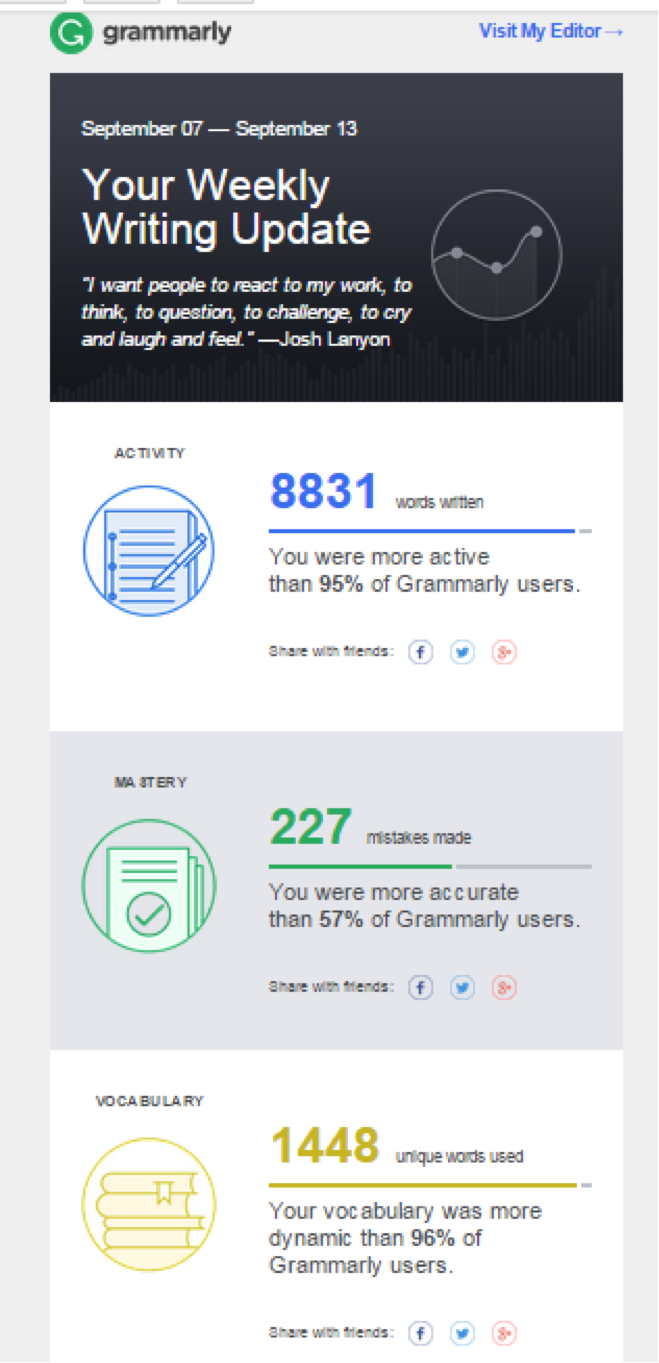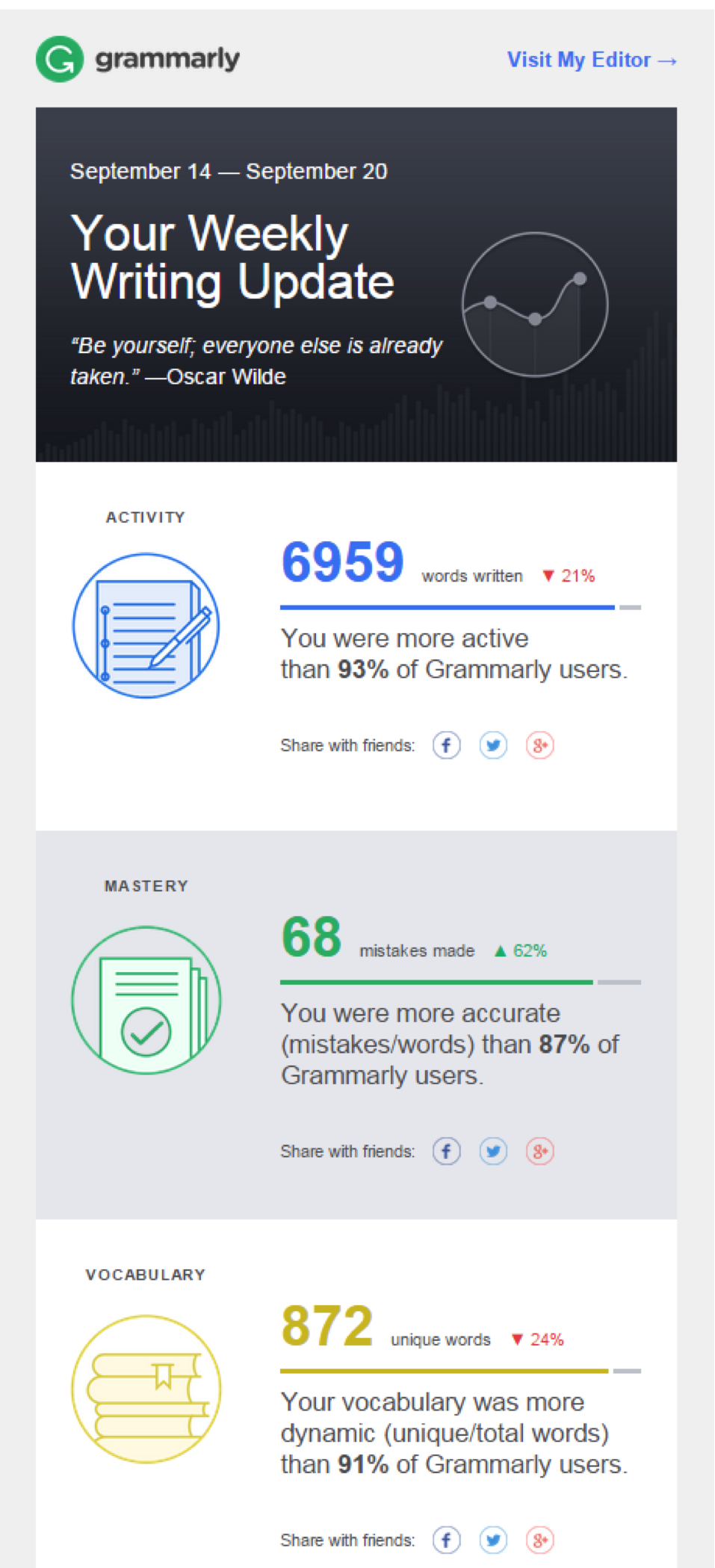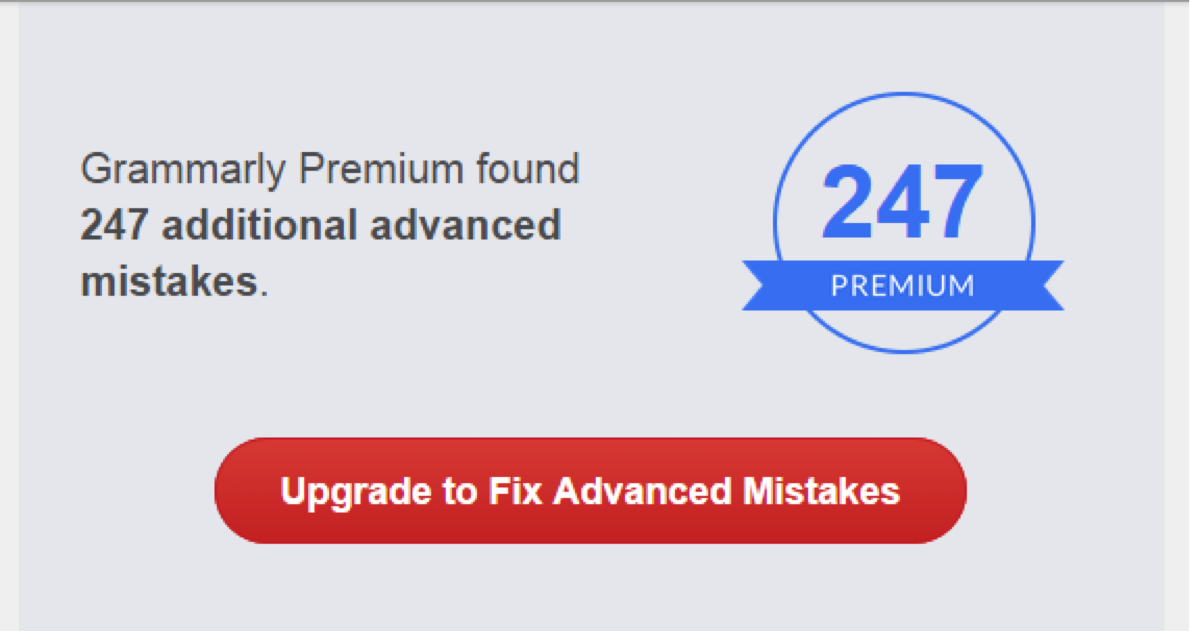
Get your FREE 30-day trial.
Please complete all fields.
Grammarly has been making writing better for its millions of users since it launched in 2009. With a recent switch to a freemium model, the editing and proofreading site has revamped its approach to email marketing, using AMPscript, (a scripting language that allows an email to render content on a subscriber-by-subscriber basis) and a focus on data to provide its users with 1:1, engaging content.
The cornerstone of this effort is a weekly digest that is sent to all free and premium customers. Grammarly includes AMPscript calls that populate personalized and actionable data, such as words written, mistakes found and vocabulary used.

Like other lifestyle brands, such as FitBit, Grammarly allows you to track progress over time and compare your performance to the larger Grammarly population. It also tracks your progress against the previous week, highlighting improvements and deficits in user performance.
“Our intention is to demonstrate writing and writing accuracy as a lifestyle, rather than something you do on a project by project basis,” said Drew Price, head of product marketing for Grammarly.
In addition to the weekly stats, the digest provides social share buttons for each section. These social icons are dynamically populated and only appear if the results are positive. So, if you had a bad week, you won’t see the social buttons.
The response to the weekly digest has been overwhelmingly positive, said Price. They’ve received enthusiastic endorsements on social media and with an open rate north of 20 percent, the weekly emails average 5 percent higher than any other email campaign.
“It’s a very healthy and well-appreciated product, from an engagement standpoint,” said Price. “This steady appreciation by our customers really helps with our deliverability.”
According to Price, Grammarly sends millions of weekly emails with a high open rate. “It’s definitely affecting our overall IP reputation positively,” he said. “We attribute the success to the large amount of dynamic content and small details that ensure each individual user gets a very personalized and instructive digest.”
Of course, Grammarly’s business survives on its Premium offering, but as Price points out, some of its users don’t need the Premium version. That’s why the company only populates a Premium offer in the weekly digest if the user exhibits enough Premium mistakes to merit the cost.

Price said the company is focused on providing a sticky and powerful free version while making users aware of the expanded functionality available through Premium.
“Our intent is making sure that our users know what features are available to them now and also with a Premium upgrade, and balancing the upsell messages,” he said. “At the end of the day we want happy, active users.”
The strategic decision to focus on the individual needs of its users is working. According to Price, the company has seen an increase in Premium conversions directly attributed to the weekly emails, without having a negative effect on churn even though this product also lives in an ecosystem of other life-cycle, promotional, and transactional emails.
Continuing to innovate, Journey Builder is next on the horizon. Price said he hopes Journey Builder will help the company continue to focus on data-driven email marketing without requiring a large investment of Grammarly’s engineering staff.
Efficiency, effectiveness and a focus on the customer have helped Grammarly produce sustained growth, earning it a 55 place rank on Deloitte’s Technology Fast 500™.
Grammarly apps are currently available in Chrome and Safari with a browser extension for Firefox in the works. As the company continues to grow its freemium products, it is looking to expand email marketing efforts to include additional customer journeys.
“Not everyone can afford a copy editor,” Price said. “Grammarly enables you to improve, own your reputation, and say what you mean.”
About Grammarly:
Grammarly improves communication among the world’s 2 billion native and non-native English writers. Grammarly corrects spelling mistakes, checks for more than 250 common grammatical errors, enhances vocabulary usage, and provides citation suggestions. Our flagship engine (which powers the Grammarly Editor) is now available as a free browser extension for Chrome, Safari, and as an add-in for Microsoft® Office. Millions of registered users worldwide trust Grammarly’s products, which are also licensed by more than 600 leading universities and corporations. Grammarly is a bootstrapped, profitable company with offices in San Francisco and Kyiv.
Want a glance at the entire Marketing Cloud solution? Check out the Marketing Cloud Quick Peek for more real-world examples.